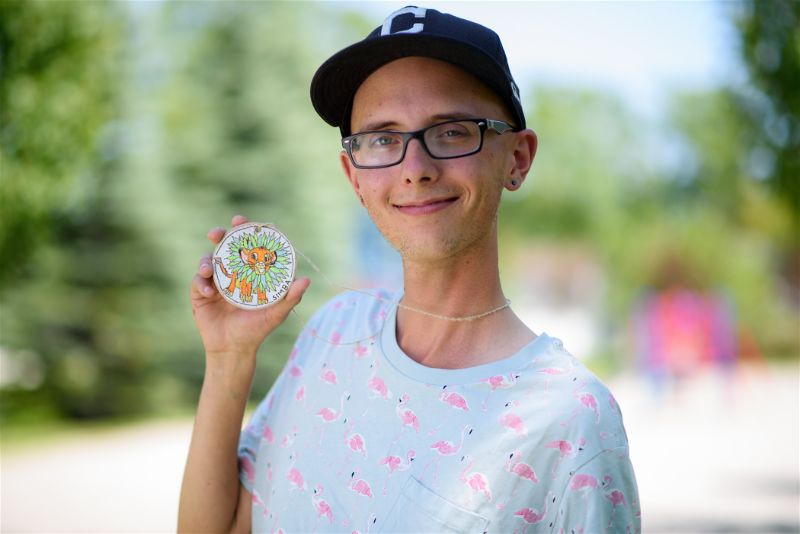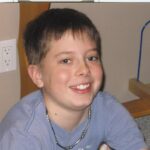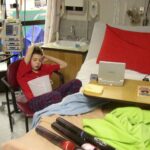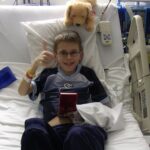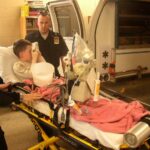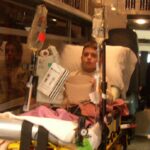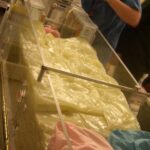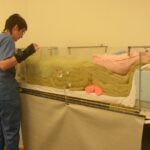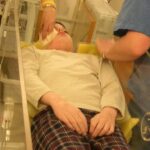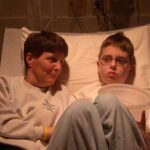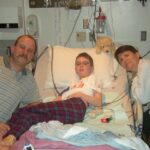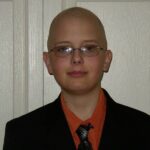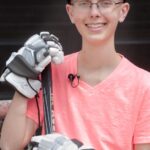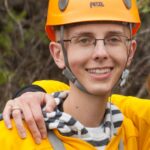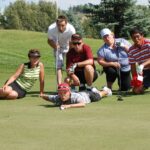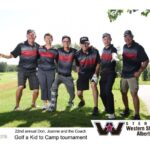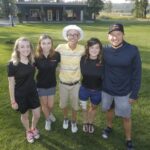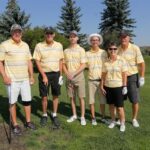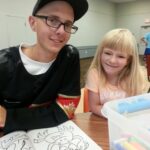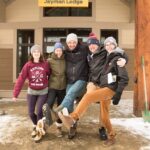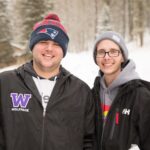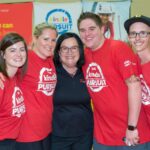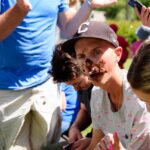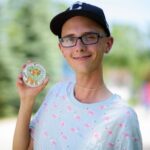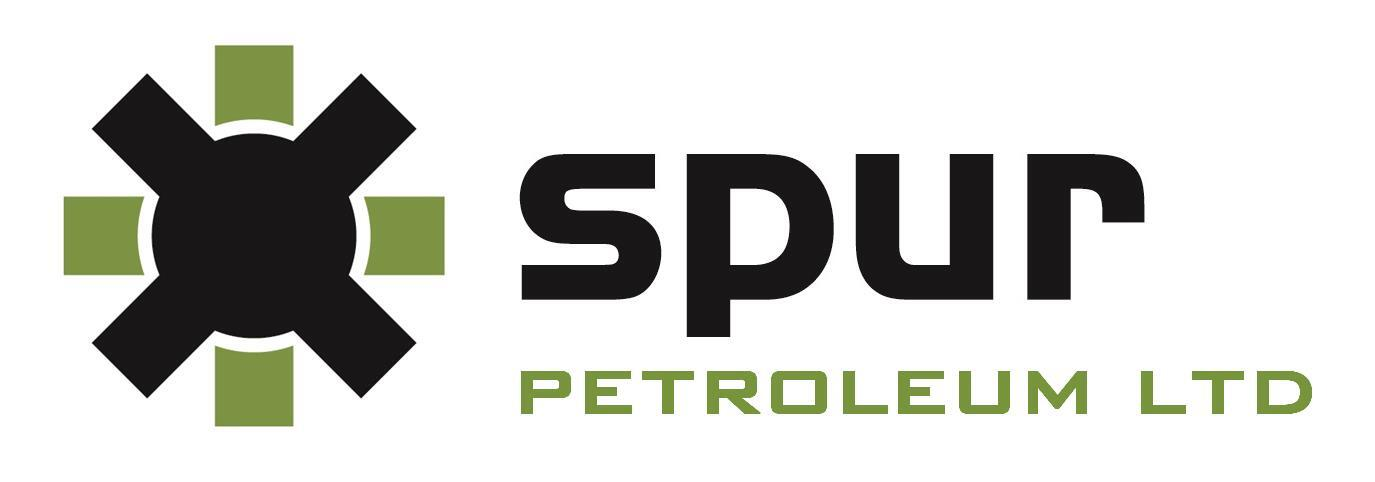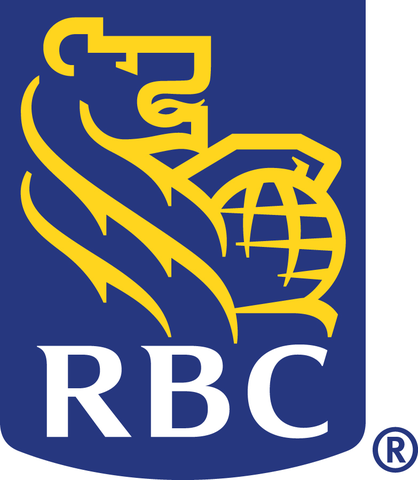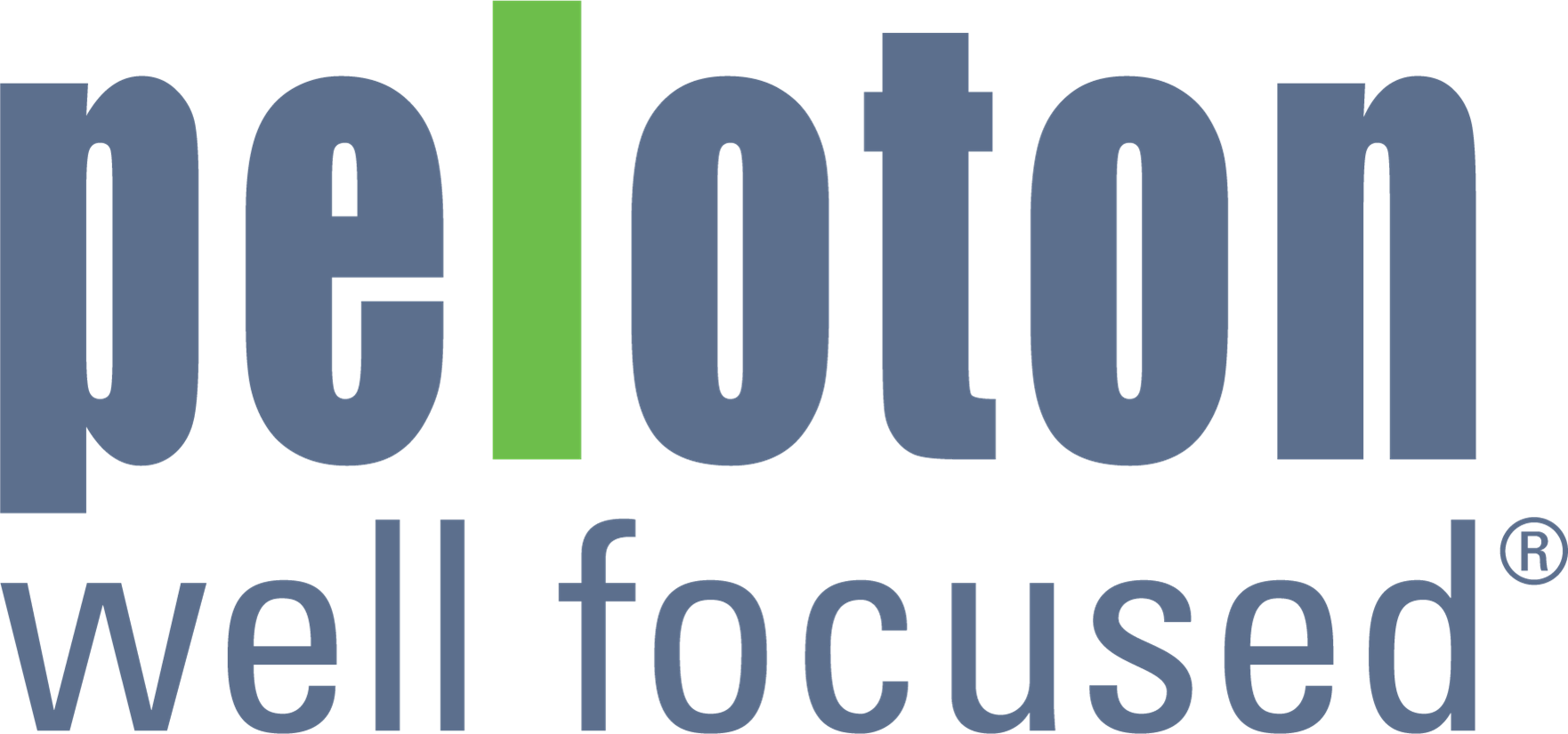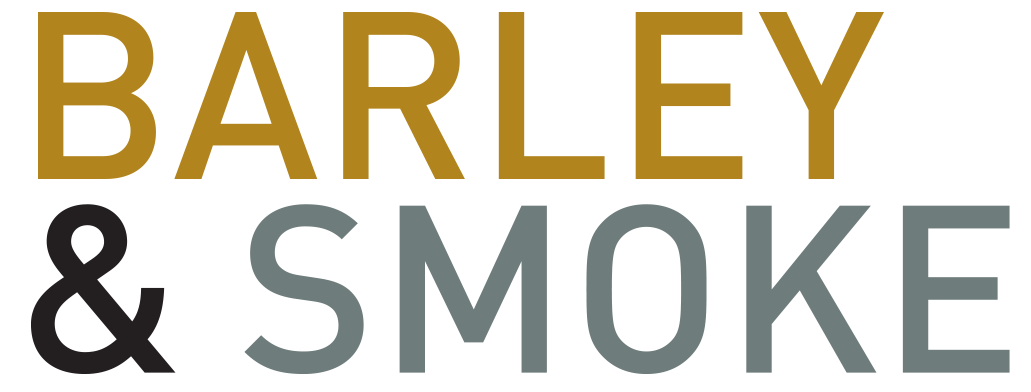Most of you reading this probably know at least one person, whose life has been affected by cancer. It might be your uncle, your sister, a friend, a grandparent, someone. Well, you’re about to know one more — me. When I was ten, I was diagnosed with CML, which actually stands for something that I can’t quite pronounce, even to this day. It is a type of leukemia, usually found in adults and rarely in children.
I can tell you one thing, I was shocked. Here I was in the emergency room, because I could barely walk, and the next thing I know they’ve taken blood and moved me into a small private room. I remember telling my mom that something must be wrong because they don’t just move you. Boy was I right.
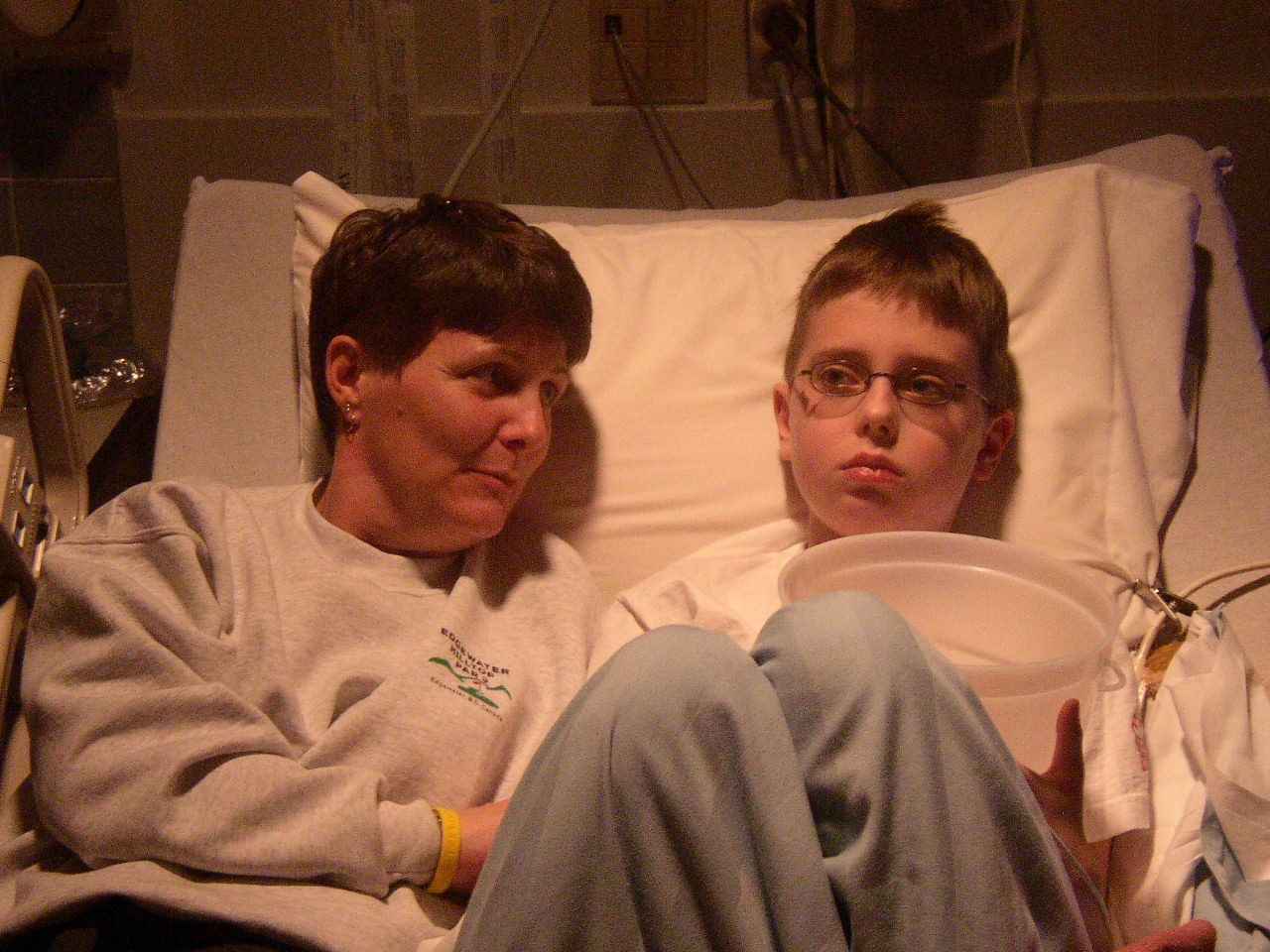
The first year didn’t seem so bad. Sure I had to spend some time in the hospital to get my white blood cells under control. And ya, I was in a wheel chair for a month and I had to use crutches for a while. I had to go to physio, but my only medication was these tiny yellow capsules. I could swallow four at a time. I even had to go back to school. Things were under control, but then those little yellow pills stopped working and I needed a bone marrow transplant.
A bone marrow transplant is serious business. The goal of the bone marrow transplant was to wipe out all the cancer cells and to destroy my immune system. They needed to wipe out my immune system, so my body wouldn’t reject the donor’s bone marrow. They were essentially replacing my immune system with a new one. This needed to happen, so the new immune system could destroy the cancer cells, which my own immune system couldn’t do. Because they were purposely destroying my immune system with high doses of chemotherapy, I wasn’t able to fight off infection. That meant I had to stay inside, in complete isolation, before and after the transplant to reduce the chances of catching something. Getting sick with a cold or a flu can actually kill you.
Being in the hospital for close to two months and having to stay at home for the rest of the school year made it really hard to keep up with school work. My friends were able to call, but they weren’t allowed to come over because my immune system was low as a result of the chemotherapy. We didn’t want to risk me catching a cold or something. So it was hard to feel a part of things. My teacher tried to include me by making a pretend Adam. They would carry “me” to class and even take “me” to lunch. Too bad “he” didn’t do my homework too. The kids at school could write me letters, which my dad would pick up when he collected my homework assignments.
Having cancer has made me realize a lot of things. You definitely cannot judge someone by how they look. You have no idea what’s happening inside. I remember walking down the mall one day, when I had “the steroid body.” For those of you who don’t know what that is, it’s when you’re carrying about 10 extra pounds — all in your face — from the medications that puff you up so much. Seeing people stop and just stare hurt.

Thanks to the bone marrow transplant, I am now cancer-free. But I will always be aware that I had cancer and I will always fear that someday it may come back. At times, it’s been very hard. You think you’re making progress and then something pops up to set you back. A symptom appears or some count is high and it seems to start all over again. Many years later I still take pills and probably will have to take some form of medication for the rest of my life—but I can live with that.
There are some things that make living with cancer a little easier — thanks to the Kids Cancer Care Foundation of Alberta. I remember my first year at camp. My parents had to talk my older brother into coming with me. He was 17 and had his own teenage life, but I was scared and needed someone I knew with me, or at least to sit with me on the bus, so he came. I felt alone and sacred. After that first year, I made so many friends from camp that it made choosing the week I wanted to go each summer difficult. I always wanted to go the week that most of my friends were there. My parents will tell you that after that first summer, they could barely get a wave from me when the bus was leaving. I was too busy catching up with everyone.
You’ve probably heard how camp is a place where kids with cancer can be normal. How we get to do things like the giant swing and the high ropes. It’s a place where we meet other kids who know what we’ve been through. It’s been a place where I got to safely do things that my parents probably wouldn’t have allowed me to do. Cancer had a tendency to make them over-protective.

Camp was all of this and much more for me. It was a place where no one would stare because I still didn’t have hair. Yes, there were nurses and paramedics to keep us safe and hand out medications, but there were no checkups, no needles and no tests. Really, for me, it was all the things that weren’t at camp that make it a really cool place.
One of my favorite things about camp was the giant swing. The giant swing is about three stories tall. You get pulled up as high as you want to go, and when you’re ready, you pull a cord and then you fall. You feel the wind blowing in your hair, if you actually have hair. It makes you feel so great to soar in the air like that.
Those friendships I made that first year and the following years are the people I’m closest to now. We have common ground and experiences that bring us that much closer together. Even though I’m too old to be a camper now, camp continues to have an impact on my life.
Soon after I turned 14 I started volunteering at Kids Cancer Care’s Camp SunRise, a camp for young kids ages three to seven. Then as I grew older, I continued on to teen camps. I’m able to relate to the campers and I can say, “I understand how you feel” and mean it. I can hopefully let them see that yes, cancer sucks, but more importantly it doesn’t have to define you.
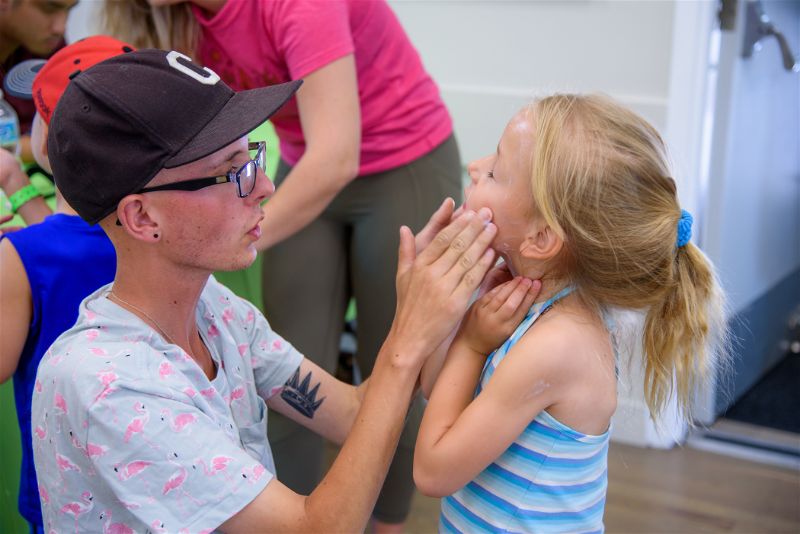
In addition to camp, Kids Cancer Care offers several other programs. Over the years, I went to a sporting event or two and enjoyed movies, fireworks and game nights. These things helped maintain a sense of belonging and of being a regular teenager.
Kids Cancer Care has also provided me with some amazing opportunities. Their Teen Leadership Program helped me to move out of my comfort zone. It gave me the confidence and the skills to try new things. In June of 2012, I received a Kids Cancer Care Derek Wandzura Memorial Scholarship, which helped start me on my current path. This year, I graduated with a Bachelor of Child Studies Degree and in September I will be continuing with a Bachelor of Education. As a future educator, I hope to bring the compassion and understanding I received at camp to the classroom and beyond.
I can’t say enough about all the wonderful, caring people I’ve met along my journey — at camp and at the hospital. My entire transplant team at the Alberta Children’s Hospital was great. They listened to my concerns, even when I wasn’t talking, because they can tell just by looking at you that something’s up. From doctors to nurses to new friends I’ll have forever — they have all helped make this experience a little easier.
My cancer experience has taught me to live life to the fullest. Have fun, be kind and do what’s right. That’s my motto.
And then there are people like you who help make all of this possible. Thank you for supporting Kids Cancer Care. You have helped make the ONE thing that is good about cancer possible for me and other kids. Thank you. Camp and the friendships we develop there mean the world to us at that time in our lives.
At 25, I am looking towards my future. What I want my career to be, what kind of man I want to become. As I think about those things and look back on my cancer journey, I realize that even though cancer does not define me it has definitely shaped me. Both you and Kids Cancer Care continue to play a part in that. Thank you.
